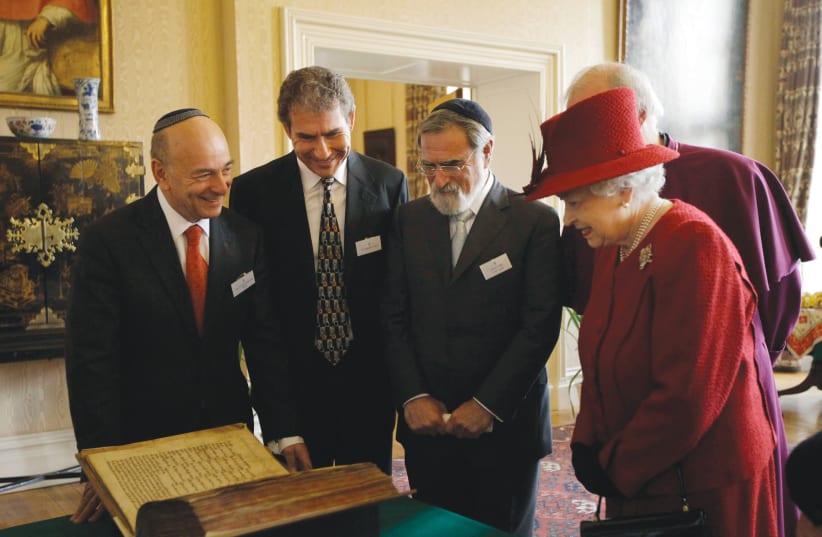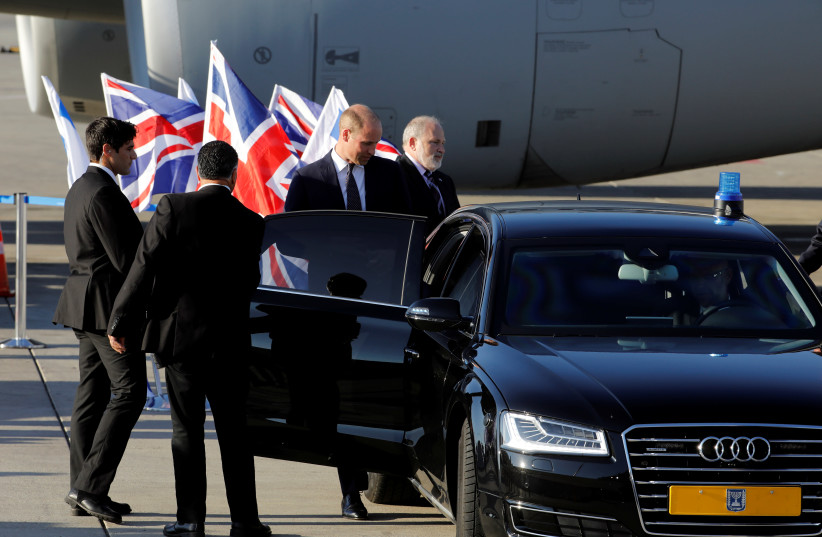In her 70 years on the throne, Britain’s Queen Elizabeth traveled widely and visited many countries – nearly all the countries of the Commonwealth – Canada in particular. She visited Canada as many as 27 times, and after turning 50, she visited 43 different countries for the first time.
She visited Jordan, Egypt and other countries in the Middle East and North Africa – but never Israel.
Following her visit to Jordan in 1984, the queen raised some alarm among British Jews according to a report in The New York Times. Sympathetic comments she had made about the plight of the Palestinians and her seeming disapproval of Israeli actions caused more than a mere flutter among British Jews.
For all that, she was sufficiently well disposed to Israelis to receive then-presidents Chaim Herzog and Ezer Weizman and to confer an honorary knighthood on former president Shimon Peres.
Herzog did in fact invite her to Israel, and although the queen herself never came, her husband, the Duke of Edinburgh, her sons Prince Edward and Prince Charles, and her grandson Prince William all came separately to Israel. However, the only official visit was that of Prince William.
It was commonly believed that the British Foreign Office, for fear of Arab boycotts, had advised the queen not to visit Israel, but even after there was no longer any real fear of boycotts and oil embargoes, the queen still did not come.
Queen Elizabeth's relationship with British Jewry
Her relationship with Britain’s Jewish community was good, and in fairly recent memory, she elevated Chief Rabbi Immanuel Jakobovits and his successor, Chief Rabbi Jonathan Sacks, to the peerage and conferred knighthoods on many other British Jews.
She also accepted the credentials of Israel’s ambassadors to the United Kingdom, including British-born ambassadors of Israel Yehuda Avner and Daniel Taub, who spoke to her with British accents.
Baroness Jakobovits, fondly known in Jewish circles as “Lady J,” used to tell the story that whenever she and the chief rabbi were invited to a state dinner at the palace, new, previously unused dishes would be the same as those on which the other guests were served. The menu would be given to a strictly kosher caterer, who would prepare a kosher meal identical to the one being served to all the other guests.
Aside from the kashrut, said Lady J, it was obvious that she and the chief rabbi were always given special treatment because the portions on their plates were always larger than those on the plates of other guests. The kosher caterer simply could not bring himself to give a small portion to the chief rabbi.
If the queen noticed, she wisely refrained from comment.

